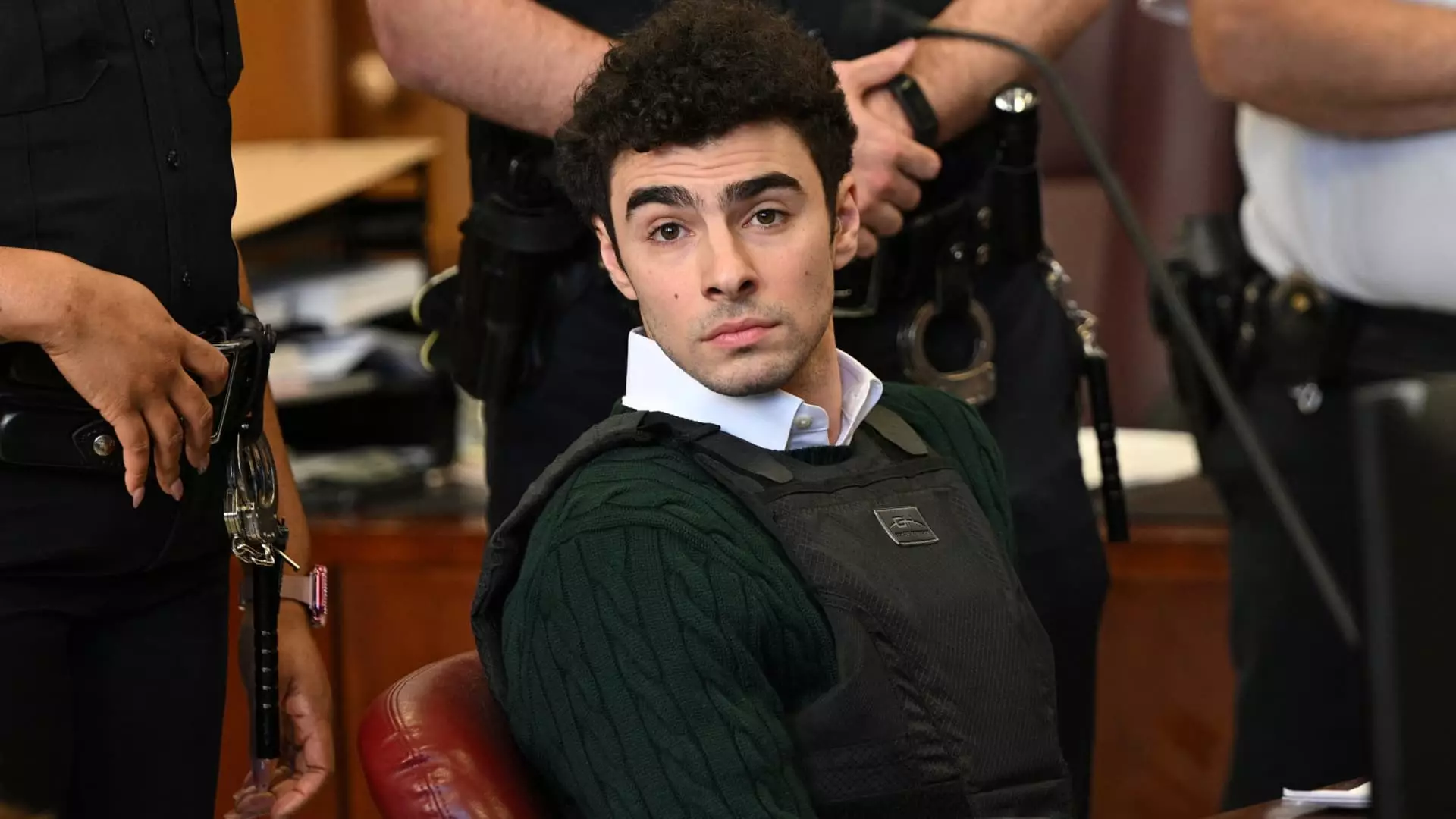The murder of Brian Thompson, the CEO of UnitedHealthcare, has not only sent shockwaves through the corporate world but has also reignited the heated debates surrounding the death penalty in America. As details unfold in the case of Luigi Mangione, the alleged perpetrator, we are confronted with disturbing questions about morality, justice, and societal response to extreme acts of violence. The act of premeditated murder is undeniably heinous; however, the broader implications of seeking the death penalty raise ethical concerns worthy of a deeper examination.
Defining Motivation: Ideological Terrorism or Personal Vendetta?
Luigi Mangione’s plea of not guilty, accompanied by accusations of ideological motives, paints a complex portrait of a killer whose actions might be rooted in deep-seated grievances against the health insurance industry. The Justice Department’s assertion that the murder was intended to amplify an ideological message is a troubling reflection of the times we live in. Are we witnessing a shift towards acts of violence being used as a means of political expression? If true, this could set a terrifying precedent that blurs the lines between political dissent and violent terrorism.
The implications of labeling Mangione’s actions as ideologically motivated extend beyond the courtroom. It forces us to consider the potential for “politically-charged” murders, which could ultimately lead to a cycle of retribution and violence. The establishment of a narrative that frames certain killings as socially justified—or even necessary—could potentially embolden individuals who feel marginalized by societal powers. The question that arises is: how far can one go in the name of ideological conviction before they become a villain rather than a martyr?
The Ominous Shadow of the Death Penalty
The prosecution’s push for the death penalty amplifies the dilemma: while Thompson’s murder was undoubtedly grotesque, the consequences of enacting the ultimate punishment are significant. The Justice Department cites Mangione’s alleged intent and careful planning as reasons to seek a death sentence. Yet, can we guarantee that capital punishment will deter future violence? Numerous studies suggest that the death penalty does little to reduce serious crimes, and instead, perpetuates a cycle of vengeance that fails to heal the social wounds caused by such tragedies.
Moreover, the politicization of the case adds another layer of dysfunction to what should be a judicial, rather than a political, issue. U.S. Attorney General Pam Bondi’s public statements, labeling the murder as a “cold-blooded assassination,” risk tainting the jury pool and compromising Mangione’s right to a fair trial. By framing this murder within the realm of ideological warfare, the case moves from a tragic personal loss to a spectacle of societal conflict, fundamentally altering how justice is administered.
Public Sentiment and the Role of the Media
As this case progresses, media coverage will undoubtedly shape public perception and sentiment towards Mangione, the murder of Thompson, and the fate of the death penalty. The story resonates deeply, making it ripe for sensationalism. The media’s tendency to focus on the shocking aspects of violent crime often overshadows the need for nuanced discussions about the death penalty and its implications. Sensational reporting can influence public outrage, leaning towards punitive measures rather than restorative justice.
This particular narrative invites emotional response and outrage from a grieving public, stifling rational discourse about the morality and effectiveness of capital punishment. How can we approach such tragedies with an emphasis on healing and understanding rather than revenge? As citizens committed to fairness and justice, it is paramount to dissect the layers of this case without losing sight of the individuals involved.
Looking Ahead: A Call for Compassionate Justice
The case against Luigi Mangione serves as a grim reminder of the criminal justice system’s complex interplay with societal values. Rather than feeding into a cycle of punitive extremism, we should advocate for a compassionate approach that recognizes the humanity of all individuals involved—victims and perpetrators alike. A robust dialogue around mental health, social responsibility, and the efficacy of capital punishment could help carve a path towards a more balanced and humane justice system.
As public discourse continues, we must resist the urge to succumb to fear and violence in framing our responses to such heinous acts. The moral implications of the death penalty deserve a thorough and thoughtful inquiry that prioritizes healing over vengeance.



Leave a Reply